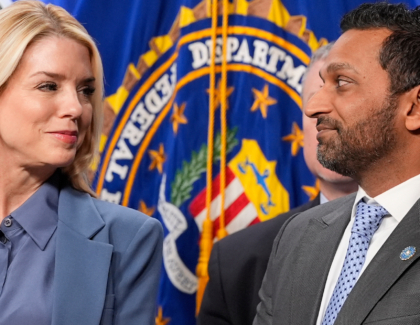Sign up for the daily CJR newsletter.
Do you remember the positions that George W. Bush and Al Gore held on preemptive war during the 2000 presidential campaign? Or on how to rebuild a major city after a catastrophic hurricane? Or on how to fix the collapse of the housing market? Of course not—the issues that most powerfully defined President Bush’s two terms were ones triggered by events unanticipated before his election.
This fact came to mind while reading the “issue” coverage of recent weeks, which has been dominated by chatter about whether Barack Obama is “flip-flopping” in an effort to tack to the center. These stories snowballed after his July 3rd remarks in Fargo, N.D., when he said that he might “refine” his policies on Iraq after consulting with military leaders later this summer. Critics of both political persuasions interpreted this comment as a clear contradiction of his pledge to withdraw troops within sixteen months.
This statement, combined with Obama’s endorsement of faith-based initiatives and his acceptance of a FISA bill that he had once condemned, provided the press with endless fodder for stories about Obama’s tactical position shifts. (More about McCain’s own evolving policies—which were comparatively underreported—in a minute.)
Last week, columnist Charles Krauthammer provided a perfect synopsis of this storyline in The Washington Post:
And with that, the Obama of the primaries, the Obama with last year’s most liberal voting record in the Senate, will have disappeared into the collective memory hole.
Obama, of course, disputes the notion that he is tempering his progressive credentials, and reports like this one, from the Los Angeles Times, call into question whether concern about Obama’s stances is actually widespread among Democrats, or whether it’s just being hyped by a McCain campaign eager to tar Obama with the waffle brush that was used so successfully against John Kerry in 2004.
Either way, an important story is buried underneath this issue shift scrutiny, one that’s going almost entirely uncovered: How would each of the two men make policy decisions as president? The candidates’ respective pivots from primary- to general-campaign mode present an opportunity for the press to address what kind of “deciders” they will be—and, more specifically, how heavy an influence the Democratic or Republican bases will have on White House policy if their party’s nominee wins in November.
Obama’s quick recommitment to a sixteen-month withdrawal from Iraq suggests that he fears bucking the left on certain issues, though his reversal on telecom immunity shows he is willing to anger the most passionate liberal activists when he considers it politically necessary. This corroborates the perception, first suggested by his decision to opt out of public campaign financing, that he is a far more calculating/shrewd politician than one might initially think.
Each of these decisions contradicts the popular fantasies of “President Obama,” suggesting he will be neither a doctrinaire liberal nor a post-partisan difference-splitter. The most interesting indicator of how Obama might attempt to navigate the ideological divide might be his faith-based initiative proposal. While he would continue giving social service money to religious organizations, he would break with the Bush policy by requiring taxpayer-funded programs to observe federal law against hiring discrimination on the basis of religion, as well as local prohibitions against discriminating on the basis of sexual orientation.
Recent policy highlights from the McCain campaign indicate a much more clear-cut loyalty to the Arizona senator’s Republican base. Obama helped put McCain’s appeasement of immigration hardliners—disavowing the comprehensive immigration reform legislation that bears his name in favor of an enforcement-first approach—back in the news by attacking him during a back-to-back appearance before the League of United Latin American Citizens last week.
Campaign Desk has been calling attention to some of the more startling policy shifts that have gone oddly underreported. Justin Peters and Liz Cox Barrett noted that McCain’s vague promises to balance the budget serve to obscure the fact that his economic plan kowtows to supply-siders who demand continued tax breaks. Zachary Roth caught this blockbuster reversal on Social Security, in which McCain appeared to suggest that the program needed to be completely dismantled instead of preserving it with a private-accounts “supplement.” And last month’s call for offshore oil drilling, made in a talk to business leaders in Houston, showed McCain sacrificing his reputation as an independent-minded environmentalist in order to cater to the energy interests that have been so close to President Bush.
Policies advanced during campaigns are, first and foremost, designed as political tools, and are guaranteed to be substantially changed if ever they get to the policy-proposal stage. If the comments and coverage from the past weeks are unclear about the policies either man will enact, they shed much light on how those policies will be made: Liberals won’t always be happy with a President Obama, but conservatives have little to fear from a President McCain.
Has America ever needed a media defender more than now? Help us by joining CJR today.






